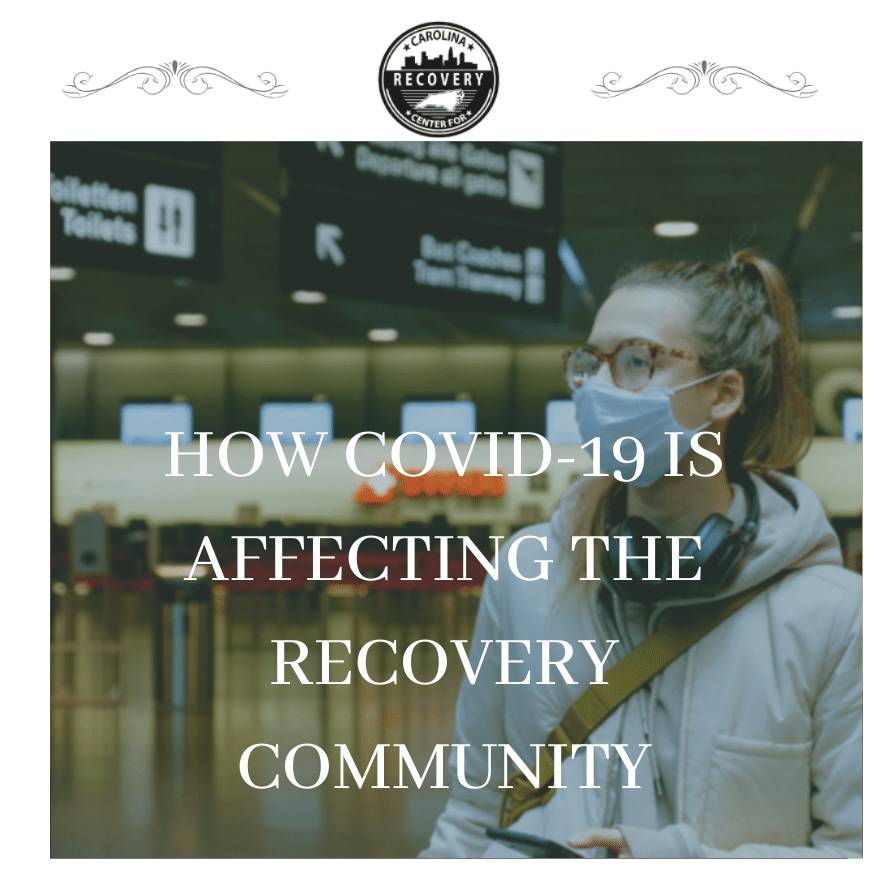How COVID-19 is Affecting the Recovery Community

Medically Verified: 2/1/24
Medical Reviewer
Chief Editor

All of the information on this page has been reviewed and verified by a certified addiction professional.
Many sober people rely on things like treatment, therapy, and support groups to stay away from drugs and alcohol. As a result of COVID-19, treatment centers and therapists are turning to telehealth and support groups have ceased in-person meetings, forcing people in recovery to rely on digital support rather than face to face interaction. Plus, with the rise of social distancing measures, everyone is adapting to a lot of changes.
Experts from the National Institute on Drug Abuse hypothesize that people with substance use disorders will be hit particularly hard, either directly or indirectly, as a result of the COVID-19 pandemic. People who are actively using drugs or alcohol are more likely to have compromised immune systems. When coupled with risky behaviors, this group is more susceptible to infection and disease transmission.[1] Furthermore, people who are sober are having to adapt to a new way of maintaining their sobriety. Unfortunately – if they don’t – they face the risk of relapse and returning to a more high-risk state. As a result, it’s important to be aware of how COVID-19 is affecting people in recovery – and what to do to cope.
The Challenges of Social Distancing
If you ask someone in recovery what they do after work, you’ll find that the overwhelming majority attend some type of recovery support groups, such as Alcoholics Anonymous (AA) or Narcotics Anonymous (NA). These meetings serve varying amounts of people, but with social distancing guidelines suggesting against even small gatherings, many of these groups have put in-person meetings on pause.[2] While many groups have begun hosting virtual meetings on platforms such as Zoom, virtual meetings are out of the ordinary for people in recovery, and, not everyone has access to such technology.
Isolation is often a precursor to relapse. Before getting sober, many addicts isolate themselves from family and friends to maintain their habit uninterrupted. However, this familiar behavior is something that can trigger people to want to use drugs or alcohol again. Humans have an innate need to connect to other humans and one of the ways we do this is through touch. Without human touch, it’s easy to fall into depression and experience heightened stress levels. When depression, anxiety, and stress take hold, they can potentially trigger a relapse. As a result, social distancing measures, although necessary and for the best, pose a serious threat to sobriety if a person is ill-equipped to cope.
Unfamiliar Territory and Changing Routines
Routine is important for a healthy, well-balanced life, and it’s something that many people didn’t have before getting sober. Having a routine creates purpose in life and provides a structured way for people to function day by day. Amid the spread of COVID-19, it’s safe to say that virtually everyone’s routine has changed and we’re all charting unfamiliar territory. However, due to the current circumstances, some of these changes include job loss, working from home, and cutting life down to its bare essentials. First, these aren’t easy things to cope with. People who haven’t developed healthy coping skills might be tempted to reach for a bottle or call up their dealer. Second, changing routines makes way for boredom. If people in recovery fail to occupy their time, they might find their mind starting to wander and devious thoughts creeping in.
Breaking a routine can make you feel a little lost and scatterbrained. When you combine this with the overall grieving process of a normal life as we knew it, it’s easy to see how this unfamiliar territory poses a threat to sobriety. In order to protect yourself against relapse during the pandemic, you have to cope in healthy ways, occupy your time, and practice self-care.
Staying Sober During COVID-19
While social distancing, it’s more important than ever to stay connected to your support group, take care of yourself, and protect your recovery. Here are some ways to deal with COVID-19 and stay sober throughout the pandemic.
Stay Connected
Social distancing doesn’t mean you can’t talk to your support group or your family. Pick up the phone and reach out to your friends and loved ones – chances are, they are having just as hard of a time adjusting as you are. Connecting to the people you care about will provide you with a sense of normalcy.
Practice Self-Care
Self-care is so much more than a spa day or extravagant vacation. The foundation of self-care comes down to eating a nutritious diet, getting enough physical exercise, and taking time to relax and de-stress. If you’re not doing these things every day, you may be putting your sobriety at risk.
Develop a Routine
Get ready every morning just as you would as if you were going to work. Attend virtual meetings when you would normally attend in-person meetings. Set aside time each day for cooking, exercising, and meditating. When you have a schedule, you’ll feel more purpose. You’re less likely to struggle with your mental health when you have some kind of routine to adhere to.
Ask for Help
If you’re struggling or have slipped up, help is available. Many therapists are turning to telehealth and residential facilities have taken the proper precautions to protect patients while continuing to provide addiction treatment services. COVID-19 is no excuse to put off getting help, so if you need someone to talk to, reach out today.
References:

